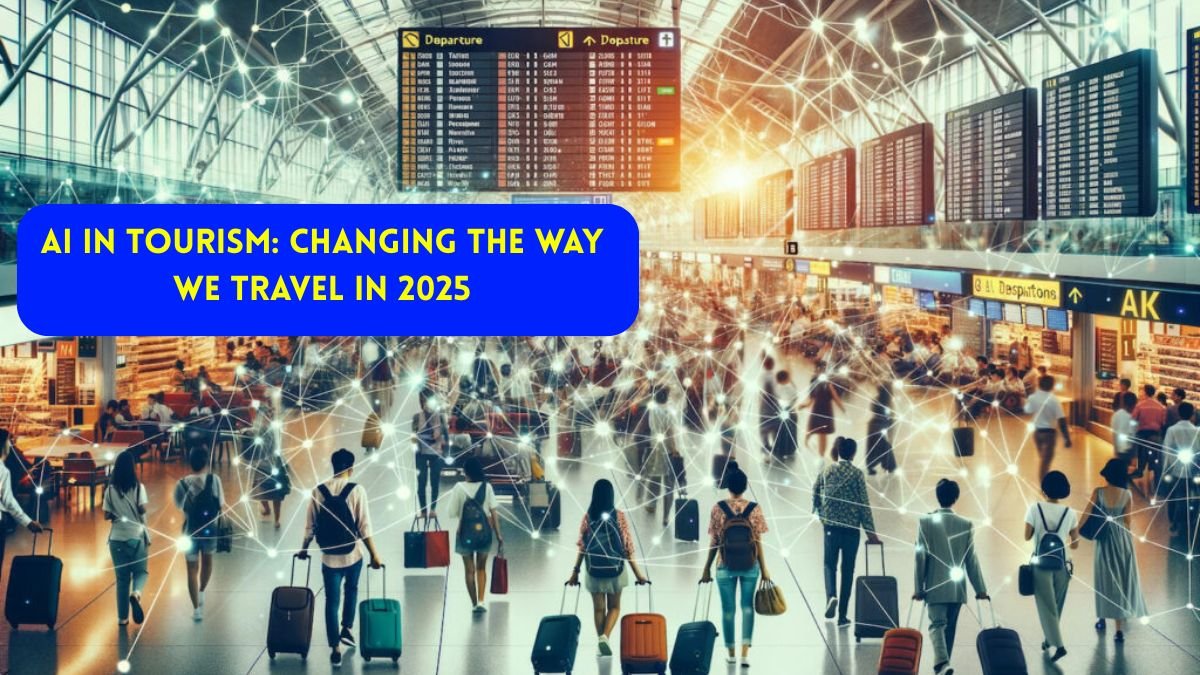In today’s world, Artificial Intelligence (AI) is not just limited to technology, but it is changing every aspect of our lives, and tourism has become the biggest example of this. With the help of AI, the tourism industry is now making travellers’ experiences not only more personalized but also faster, simpler and enjoyable.
According to Forbes, by 2030, the global industry of AI will be around $15.7 trillion, and by 2024, investment in it can reach around $500 billion. This will not only impact the world economy but will also completely change industries like tourism.
An MIT study shows that companies that use AI combined with human skills perform better by 650% on average. This is called “Augmented Enterprise”, where the confluence of humans and AI takes industries to new heights. This change is also clearly visible in the tourism sector, where AI is providing personalized suggestions, smart booking and excellent customer support for travellers.
Growing influence of AI in the tourism industry
The tourism sector is rapidly adopting AI technology, moving beyond traditional methods. AI-enabled chatbots and virtual assistants provide instant assistance and personalized suggestions to travelers. From hotel bookings, flight reservations to local tour information, these tools are active 24/7 and significantly reduce the burden on human staff.
In addition, AI helps companies predict smart pricing, demand forecasting and travel trends through data analytics. The advantage of this is that businesses get a chance to make data-based decisions to increase their revenue and reduce costs.
Predictive Maintenance is also bringing a big change in tourism. With the help of AI, hotels and airlines keep track of the condition of their infrastructure and equipment, reducing the chances of sudden breakdowns or inconvenience and making the passenger experience even smoother.
Personalizing and modernizing the traveler experience
The biggest strength of AI is to create a personalized experience for travelers.
- Tailored Recommendations: AI analyzes past trip data, social media activity, and real-time trends to create a unique itinerary for travelers. Whether it is recommending local restaurants or places to visit, this technology saves travelers time and effort.
- Improving transportation and navigation: AI optimizes routes of transport systems to reduce travel time. Real-time traffic updates and smart navigation apps provide travelers with a fast and convenient travel experience.
- Smart Pricing: AI adjusts prices in real-time based on market demand, seasonal trends, and competitors’ prices. This gives companies more profit and customers competitive rates.
- Automated Booking Systems: AI-enabled systems make hotel check-in, passport data extraction and other reservation processes faster and error-free.
Operational Efficiency and Smart Services
AI is not only improving traveller experience but also increasing the efficiency of tourism businesses.
- AI-powered Virtual Tour Guides: Travellers can now use Augmented Reality (AR) based virtual guides on their smartphones or wearable devices that provide information about historical sites and cultural places.
- Safety and Security Measures: AI-enabled surveillance systems detect suspicious activities in real-time. Biometric identification systems ensure fast and secure verification at airports.
- 24/7 AI Customer Support: AI-driven chatbots and virtual assistants provide round-the-clock assistance to travellers, be it flight booking, hotel reservation or any query.
Challenges and ethical aspects
Although AI is taking the tourism industry to new heights, it also comes with many challenges and ethical concerns.
- Data privacy: Travelers’ personal data is important for AI systems, but it is important to ensure its security and transparency under regulations like GDPR.
- Bias and discrimination: If AI is trained on biased data, it can inadvertently promote discrimination.
- Impact on employment: AI can eliminate many jobs, but it will also create new opportunities. Skill training and workforce development are the keys.
CONCLUSION
In the future, AI will become an integral part of the tourism industry. Hyper-personalized travel. AI will create personalized travel plans for every traveler in real-time. Integration with VR and IoT. AI with Virtual Reality (VR) and Internet of Things (IoT) will provide immersive and interconnected travel experiences to travelers. Predictive Analytics . Seamless services will be ensured for travellers by predicting potential problems before the trip. In the coming years, AI will not only make trips more convenient and personalised but will also make the tourism industry more competitive, efficient and innovative.
